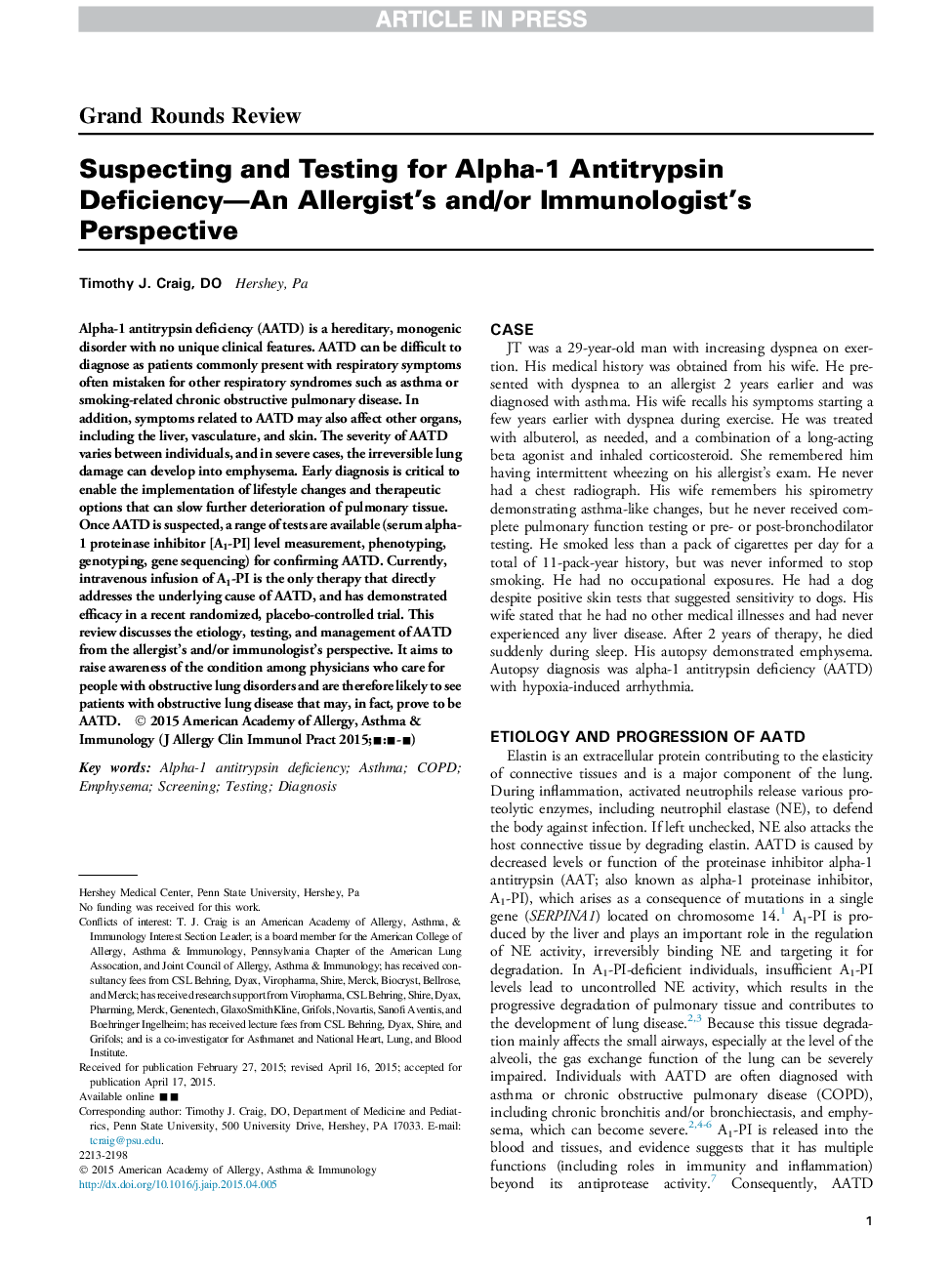| Article ID | Journal | Published Year | Pages | File Type |
|---|---|---|---|---|
| 6068367 | The Journal of Allergy and Clinical Immunology: In Practice | 2015 | 6 Pages |
Abstract
Alpha-1 antitrypsin deficiency (AATD) is a hereditary, monogenic disorder with no unique clinical features. AATD can be difficult to diagnose as patients commonly present with respiratory symptoms often mistaken for other respiratory syndromes such as asthma or smoking-related chronic obstructive pulmonary disease. In addition, symptoms related to AATD may also affect other organs, including the liver, vasculature, and skin. The severity of AATD varies between individuals, and in severe cases, the irreversible lung damage can develop into emphysema. Early diagnosis is critical to enable the implementation of lifestyle changes and therapeutic options that can slow further deterioration of pulmonary tissue. Once AATD is suspected, a range of tests are available (serum alpha-1 proteinase inhibitor [A1-PI] level measurement, phenotyping, genotyping, gene sequencing) for confirming AATD. Currently, intravenous infusion of A1-PI is the only therapy that directly addresses the underlying cause of AATD, and has demonstrated efficacy in a recent randomized, placebo-controlled trial. This review discusses the etiology, testing, and management of AATD from the allergist's and/or immunologist's perspective. It aims to raise awareness of the condition among physicians who care for people with obstructive lung disorders and are therefore likely to see patients with obstructive lung disease that may, in fact, prove to be AATD.
Keywords
Related Topics
Life Sciences
Immunology and Microbiology
Immunology
Authors
Timothy J. DO,
